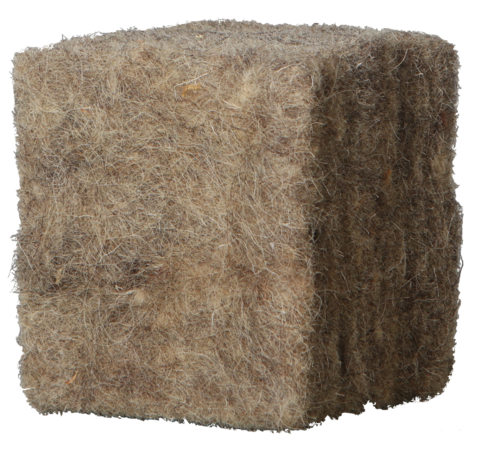sheep wool
Ecological Data per mass per volume
| Subject | Value | Unit |
|---|---|---|
| Primary Energy, non-renewable | 23.2 | MJ/kg |
| Primary Energy, non-renewable | 1,161.0 | MJ/m³ |
| Global Warming Potential | 0.8 | kg CO2-eq/kg |
| Global Warming Potential | 0.0 | kg CO2-eq/m³ |
(show values per volume) (show values per mass)
Life Cycle Transition
About the Product

Sheep wool shows properties that qualify it as an insulating material. Due to its structure, it has a low thermal conductivity and can absorb high amounts of moisture without losing its insulating properties than many other materials such as mineral wool. The product Isolena wool shown here consists of sheep’s wool, which is obtained from alpine sheep from Austria, Germany and Switzerland. It is processed into rolls, ribbons or loose wool.
In addition to the good thermal insulation properties of wool, the use of Isolena wool has a positive effect on the indoor climate. Molecules of the keratin contained in the wool absorb pollutants such as formaldehyde and neutralise them. It is used as insulation in exterior and interior walls, facades, roofs, floors, ceilings, windows, as impact sound insulation and in acoustic ceilings. The insulation is tacked to the substrate. Sheep wool, which consists of protein fibres, is not a breeding ground for mould fungi.
After loosening from the substrate, it can be reused. Also, a recycling or thermal utilization is possible, in addition it is biodegradable. As a natural insulating material without additives, it can be completely returned to the biological cycle.
Manufacturer: Isolena Naturfaservliese GmbH